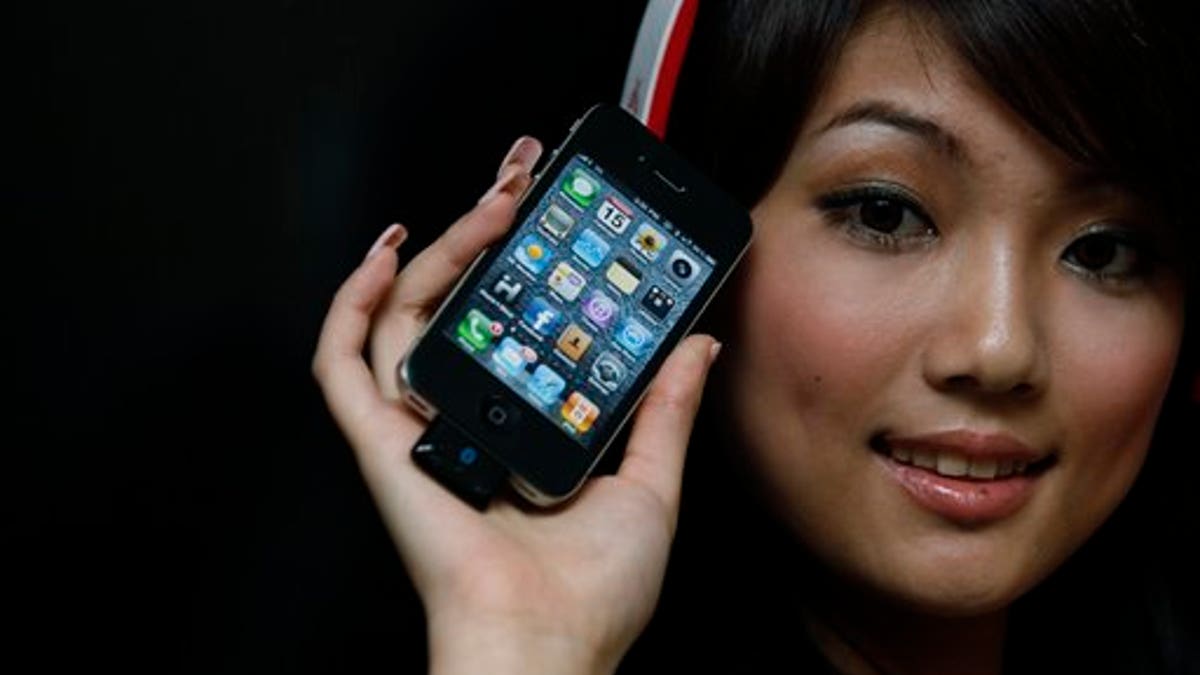
A model holds the latest iPhone 4 (with an attached Bluetooth device) during a promotional event in Hong Kong Thursday July 15, 2010. (AP Photo/Kin Cheung)
The Electronic Frontier Foundation and hackers everywhere scored a victory this week when the Library of Congress's Copyright Office ruled that users can legally jailbreak their phones -- particularly Apple's iPhone.
Jailbreaking, the government said, is "innocuous at worst and beneficial at best."
Apple, which has long been vocally opposed to any meddling with the iPhone, doesn't seem particularly excited by the decision, but it's not going to let a little thing like a copyright ruling alter its existing policy of voiding the warranties of jailbroken phones.
"Apple's goal has always been to insure that our customers have a great experience with their iPhone and we know that jailbreaking can severely degrade the experience," Apple said in a statement provided to Cult of Mac. "As we've said before, the vast majority of customers do not jailbreak their iPhones as this can violate the warranty and can cause the iPhone to become unstable and not work reliably."
Jailbreaking, the company said, leaves the phone open to the malicious attacks Apple works to avoid with its closed product ecosystem and App Store vetting process.
Apple outlined its concerns with jailbreaking on its support page, including device and application instability, unreliable voice and data, disruption of service, the aforementioned compromised security, shortened battery life, and inability to apply future software updates.
"It is also important to note that unauthorized modification of the iOS is a violation of the iPhone end-user license agreement," the company wrote. "Because of this, Apple may deny service for an iPhone, iPad, or iPod touch that has installed any unauthorized software."
Monday's Copyright Office ruling is part of a Digital Millennium Copyright Act (DMCA) review conducted every three years by the librarian of Congress. The librarian, James H. Billington, looks at the DMCA to see if there are any emerging technologies that might be exempt from the law's ban on circumventing access to copyrighted material.
This year, the EFF asked Billington to examine the jailbreaking issue, particularly as it pertains to the iPhone. Billington also granted exemptions for DVD remixing, wireless networks, video games, computer programs on dongles, and e-books.
